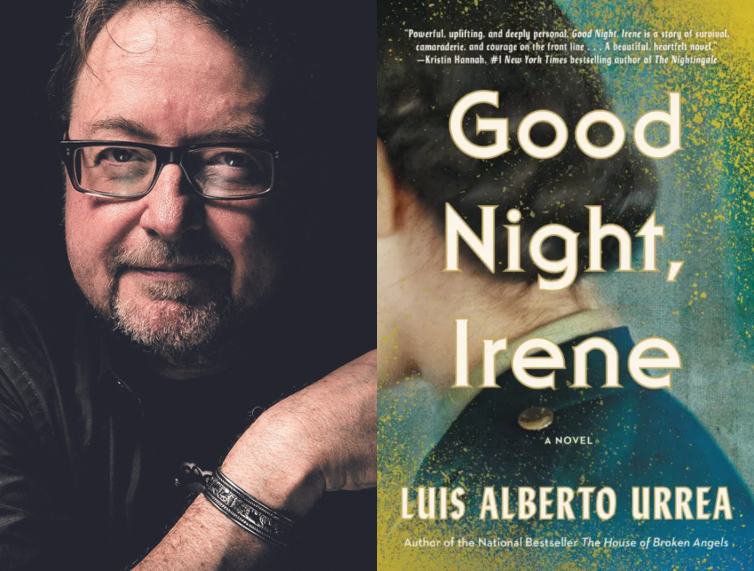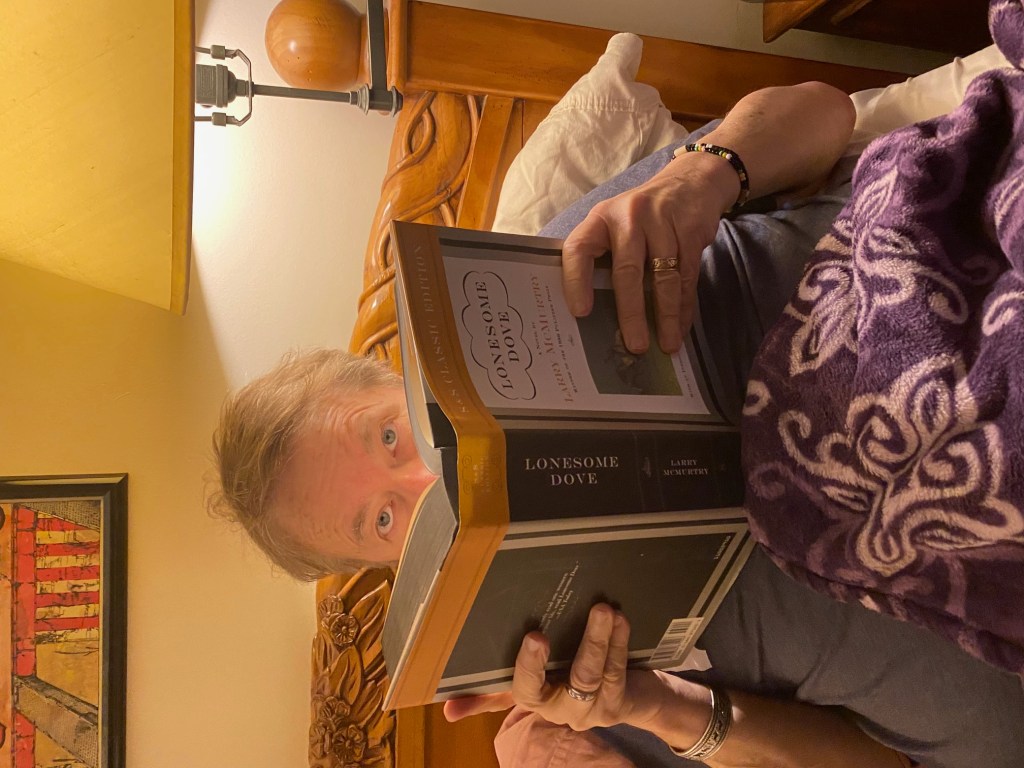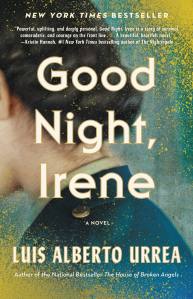Luis Alberto Urrea


A finalist for the Pulitzer Prize for his landmark work of nonfiction The Devil’s Highway, now in its thirty-fourth paperback printing, Luis Alberto Urrea (he/him) is the author of numerous other works of nonfiction, poetry, and fiction, including the national bestsellers The Hummingbird’s Daughter and The House of Broken Angels, a National Book Critics Circle Award finalist. A recipient of an American Academy of Arts and Letters Award, among many other honors, he lives outside Chicago and teaches at the University of Illinois Chicago.
Taking as inspiration his mother’s own Red Cross service, Luis Alberto Urrea has delivered an overlooked story of women’s heroism in World War II. With its affecting and uplifting portrait of friendship and valor in harrowing circumstances, Good Night, Irene powerfully demonstrates yet again that Urrea’s “gifts as a storyteller are prodigious” (NPR).



Lately lots of poetry and I just finished The Devil Takes You Home by Gabino Iglesias and, to be honest, I think the devil may now be coming after me … if you are gonna read it, make sure to take your vitamins first! What I’ve been eager to get to are the new Cormac McCarthy books. The beautiful matching set mocks me from my nightstand.

My favorite place to read is in bed, late into the night with my wife falling asleep beside me. No pictures.


The Jungle Books, Tom Sawyer and let’s be honest – Andre Norton’s Storm Over Warlock, the story of a young man on an unnamed planet with a pet hawk and a psychic wolverine who wages a one-man war against the invading giant ant man. A classic. I read this book over and over, and reader, I must confess: I was that boy.

I really enjoy the cheesiest reality shows. You know, the ones where strangers are coerced into marriage at first sight? Those kind of shows. At least to my wife’s relief, I am past the phase in which I would tell you I never miss professional wrestling. But we have many favorites. Succession, of course. And we adored Bad Sisters. Hooked on The Last of Us and am savoring Transatlantic. I do drive the rest of the family out of the room when I start watching Gold Rush and imagine myself as a multimillionaire gold miner with the world’s biggest tractor.

I am greatly looking forward to reading David Gessner’s new book A Traveler’s Guide to the End of the World (out in June). An advance reader’s copy of Miriam Gurba’s newest, Creep, is on the top of my TBR pile. And as soon as I see the new James Lee Burke, I will stop everything I am doing and read that.

I would like to talk to animals.
This New York Times bestselling novel tells an exhilarating World War II epic that chronicles an extraordinary young woman’s heroic frontline service in the Red Cross.
“Urrea’s touch is sure, his exuberance carries you through . . . He is a generous writer, not just in his approach to his craft but in the broader sense of what he feels necessary to capture about life itself.” —Financial Times
In 1943, Irene Woodward abandons an abusive fiancé in New York to enlist with the Red Cross and head to Europe. She makes fast friends in training with Dorothy Dunford, a towering Midwesterner with a ferocious wit. Together they are part of an elite group of women, nicknamed Donut Dollies, who command military vehicles called Clubmobiles at the front line, providing camaraderie and a taste of home that may be the only solace before troops head into battle.After D-Day, these two intrepid friends join the Allied soldiers streaming into France. Their time in Europe will see them embroiled in danger, from the Battle of the Bulge to the liberation of Buchenwald. Through her friendship with Dorothy, and a love affair with a courageous American fighter pilot named Hans, Irene learns to trust again. Her most fervent hope, which becomes more precarious by the day, is for all three of them to survive the war intact.
Taking as inspiration his mother’s own Red Cross service, Luis Alberto Urrea has delivered an overlooked story of women’s heroism in World War II. With its affecting and uplifting portrait of friendship and valor in harrowing circumstances, Good Night, Irene powerfully demonstrates yet again that Urrea’s “gifts as a storyteller are prodigious” (NPR).
